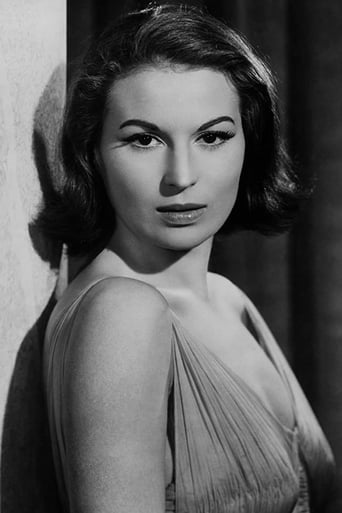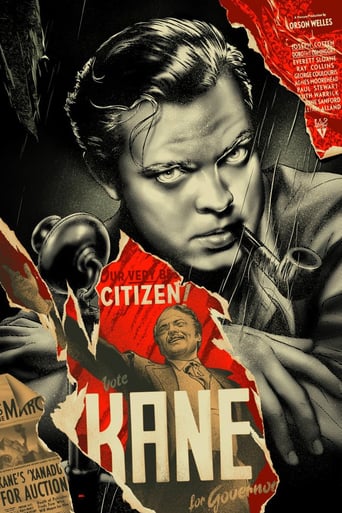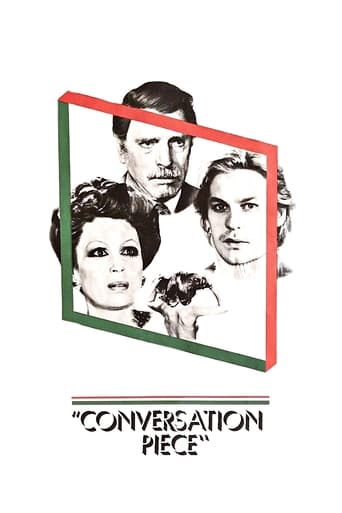
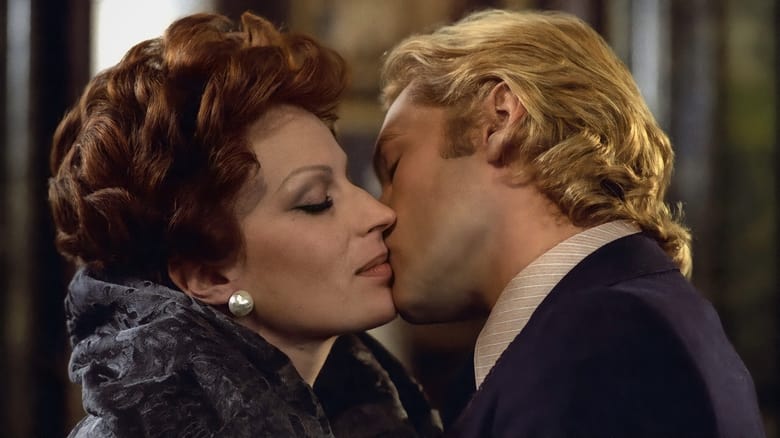
Conversation Piece (1974)
A retired professor of American origin lives a solitary life in a luxurious palazzo in Rome. He is confronted by a vulgar Italian marchesa and her lover, her daughter and her daughter's boyfriend, and forced to rent to them an apartment on the upper floor of his palazzo. From this point on his quiet routine is turned into chaos by his tenants' machinations, and everybody's life takes an unexpected but inevitable turn.
Watch Trailer
Cast
Similar titles

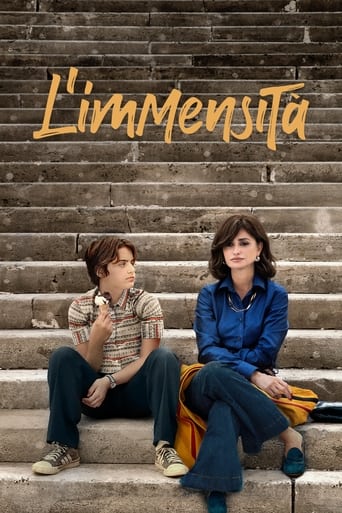
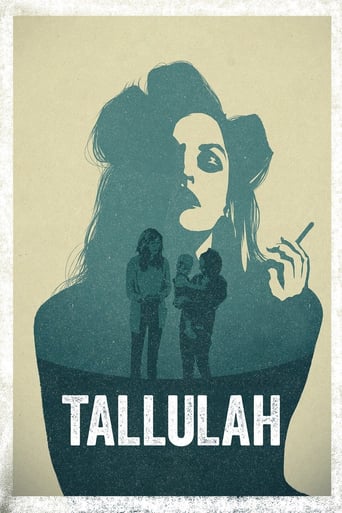



Reviews
Beautiful, moving film.
A lot more amusing than I thought it would be.
In truth, there is barely enough story here to make a film.
A story that's too fascinating to pass by...
You discover entire his universe in this film who seems be an elegy. a film about solitude. and about family. politics. and love. dark. bitter. cruel. and precise definition of Visconti filmography themes. a film who works in admirable manner against the small not inspired details. more than other films, it represents a confession. honest. and terrible. about a world, about the others, about abdication, about force of challenges. about the way to define yourself.
Possibly due to illness of director Luchino Visconti, but Conversation Piece no way is up there with other of his work that I've seen like The Leopard, The Damned, and Death In Venice. It was interesting to learn how star Burt Lancaster's contract called for him to step in and direct if Visconti wasn't up to it.Lancaster plays an American classics professor, retired living a well ordered existence among paintings and books and other such Conversation Pieces. But his palazzo which looks like a museum has a big upkeep and he's hammerlocked into renting his top floor to a rather course and vulgar widow Silvana Mangano and her daughter Claudia Marsini. Marsini comes along with boyfriend Stefano Patrizzi and Mangano has tagging along after her boy toy Helmut Berger.The subject of Conversation Piece is decadence, a topic that Visconti loved to make movies about. Still those other films I cited really showed it well. Conversation Piece was aptly named as what we did in a beautiful setting is talk about it. Helmut Berger has the most interesting part and he springs quite a surprise on Lancaster toward the end of the film.Conversation Piece is a beautifully photographed film, but quite static.
Beautiful interiors and the detail of a picture by Arthur Davies observed through magnifying glass by an elderly Professor. The picture occurs to show a family... Can anyone realize that this painting shall soon constitute a prelude to such unpredictable events and reflections?Luchino Visconti did not make many movies in his career because he insisted on saying that his films related to the things that really captivated him. When he wanted to say something significant, he just made up his mind to commit himself to another production. And of course there are better and worse movies of his, naturally; however, I personally think that CONVERSATION PIECE (or rather the more accurate title GRUPPO DI FAMIGLIA IN UN INTERNO - group of the family within) is one of those movies that intensely reveals a desire to convey a message. Count Visconti is much different and older here than 30 years earlier in his OSSESSIONE but equally powerful.It is truly a psychologically captivating image of a communication among people who are absolutely different in their coexistence. The Professor (Burt Lancaster) is a man of clearly defined ideas, an elderly intellectual who has already set down his life and seeks to be left alone among his "mute pictures." However, a group of people intervene and insist on him to rent the elegant upper flat. These are Marchesa Bianca Brumonti (Silvana Mangano) with her lover Konrad (Helmut Berger), and her daughter Lietta (Claudia Marsani) with her boyfriend Stefano (Stefano Patrizi). Although they seem to be nice people at first sight, they occur to be a true riddle for the Professor who is gradually losing contact with reality. Their vulgar talk harms him and their open bisexuality shocks him. Things turn worse and, consequently, the suspicious events make the Professor more and more annoyed till the climax of events: emotional conversation. Then, the atmosphere gets most exciting, Marchesa drinks rare evening coffee and people harm themselves: some physically, some emotionally and some in both ways. Yet, no one can predict what this horrific climax moment will cause...Thanks to unpredictable content and good action, the film occurs to be the Visconti's production of particular impression and interest. But that is not the only aspect that talks for the movie. Art is expressed in beautiful images, excellent interiors comparable to IL GATTOPARDO and some brilliant performances. I say "some" because not everyone gives a top notch performance. Burt Lancaster does the continuation of the magnetic job he did as Prince Salina in IL GATTOPARDO: he is very convincing as the Professor portraying a man desirous of stability, a bit intolerant and maniacal as he described elderly people, but overall a warm hearted reliable character so anxious with all sorts of sudden changes (moral ones too). Silvana Mangano is appealing as Marchesa Bianca: eminent, partly decadent, very elegant and nervous. She represents the other side of the older generation escaping not to books or paintings like the Professor but rather to life of luxury and extraordinary journeys. Yet, consequently, she also loses link with reality. She is more acknowledged of the world and alleged information than real dangers within her family. Youngsters, however, do not appear that convincing. Helmut Berger, though a good actor especially after his role in LUDWIG, appears to be a bit pathetic in the role of Konrad, Claudia Marsani is rather sensual and beautiful than talented and Stefano Patrizi does not appeal to me at all. Some good job among the supporting cast is done by Elvira Cortese as Erminia, the housekeeper who has some wonderfully witty moments. But finally, I should address the most important aspect of the movie that makes it so impressive and so unique. It is the psychology of what is going on in the entire film, it is the constant attempt at communicating rather simple ideas, yet failing to do that. Why? Because the contrast is too serious: intellect vs parroting, mutual goodness vs hedonism, good will vs good fun, idealism vs materialism, the old vs the young with all specific fears and desires. That is the gist of the movie, that is what made the Professor realize and makes us realize a significant fact: it's really possible to speak one language, use the same codes, yet absolutely fail to communicate and coexist. It makes people remark the division of society, which is not a very privileged fact, but true one, unfortunately.CONVERSATION PIECE is a film I'd recommend you to see. But remember one thing: it really has to do with the theme you are not likely to find elsewhere: shallow understanding of nothing and profound understanding of everything. 8/10
"Gruppo di famiglia in un interno" has a special meaning for me, `cause it was the first Visconti`s film I`ve seen. It was a successful beginning for "Gruppo di famiglia" has concentrated all the most significant themes of his late works - death, solitude, disintegration of family and decay of traditional values, human searching for harmony in conditions of hostile environment and internal dissonance. I guess this movie is a kind of psychological puzzle - the director gives us some fragments of picture and a slight allusion how to make it up. So you'd better watch this movie several times ( at least two).Is it a precise sketch of decaying society or a drama of solitude and misunderstanding? I think both. The old Professor fenced himself off with beautiful pictures, classical music, exquisite trinkets. He seems disillusioned, he dislikes people and prefers things, they create. We conceive the environment from the Professor's viewpoint, the action of movie is restricted with his apartment - so we have exact and oppressive sensation of his voluntary hermit-existence, externally calm, but desperate like the Death. This measured life is abruptly broken off by the group of people - eccentric, tactless, obtrusive and noisy. Despite the Professor's resistance, the newcomers involve him in the storm of their passions and collisions. The epicenter of this storm is Conrad - an unscrupulous young man, a gigolo of the rich marchesa. But it's just one side of his figure, the first and quite deceitful impression. It also refers to other characters who turn out to be different from the impression they produce at first. The part of Conrad was gorgeously played by Helmut Berger who seems to embody in last films of Visconti the dangerous temptation of beauty - fatal for other people and finally for its owner. Suddenly it becomes evident that the unapproachable Professor dreams of family. The reality is pierced now and then by his reminiscences of the youth, of his mother, his young wife who'd left him (or he'd left her?). Those memories are always interrupted by irritating noise of his guests. The Professor exists at the joint of two realities and rush from one to the other with torment and hesitation. At last he realizes that feels more affection to those people with all their problems then to his exhausting reminiscences or imaginary interlocutors from "conversation pieces". He told sensitively: "It could have been my family!" Blinded with this unexpected affection he doesn't notice the doom sneering at him. He doesn't realize that he neither knows nor understands those people and there's very little time to achieve something new. There's only death ahead for him. That's why like a sudden intolerable blow he takes a suicide of Conrad who attracted the Professor most of others. Indeed Conrad is the least false figure in that "family". Beside his ruthless awareness the Professor looks like a naive idealist. His bedroom transformed into a hospital ward, a tape of cardiogram - it's a price he pays for his illusions.


